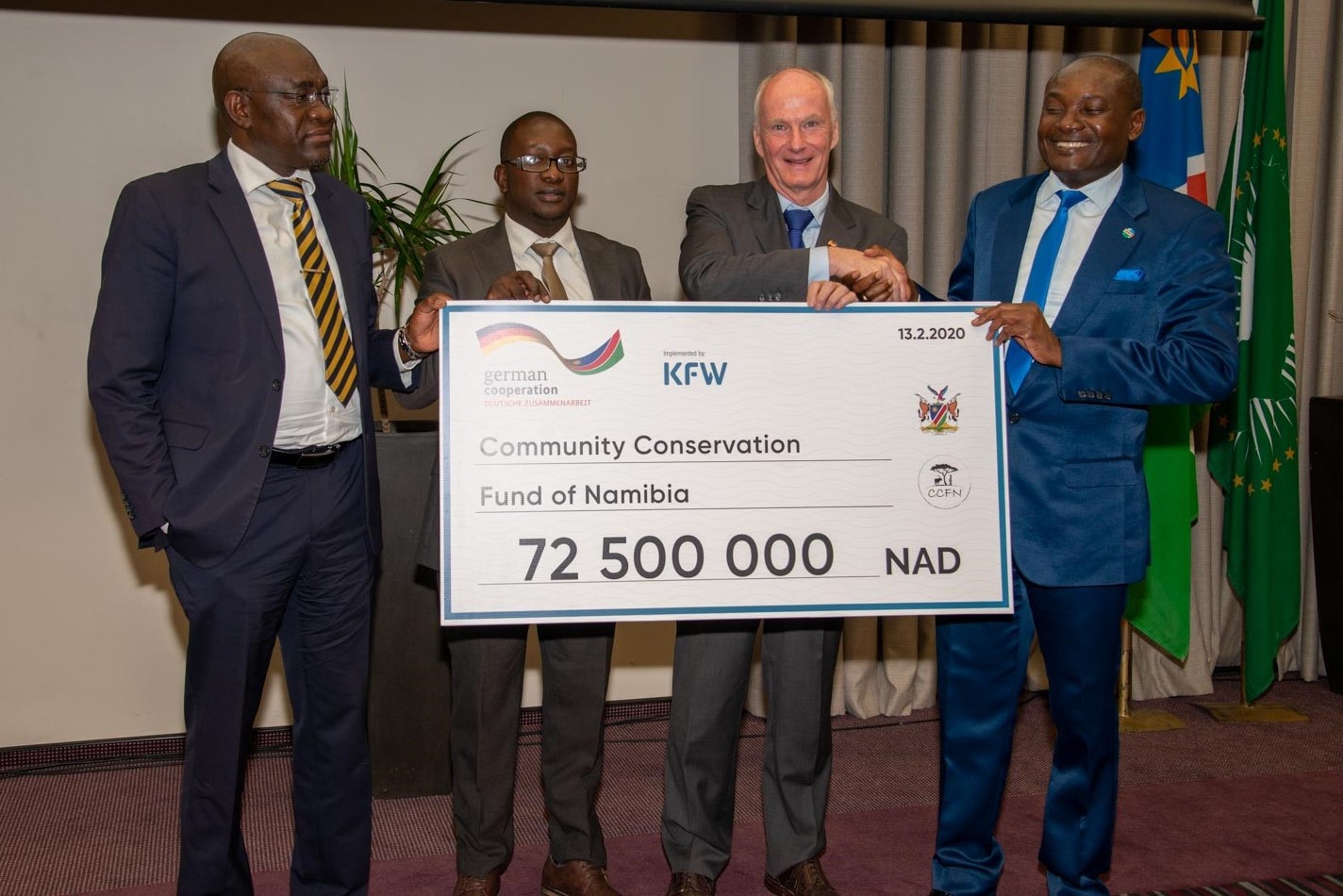
CCFN Launches To Tackle Human -Wildlife Conflict In Communal Conservancies
The Community Conservation Fund of Namibia (CCFN), which was registered in 2017 was officially launched on 13 February 2020 by the Minister of Environment and Tourism, Hon. Pohamba Shifeta, in Namibia’s capital, Windhoek.
From a global perspective, Namibia has proven to be an elite community conservation model that countries from around the world seek to emulate. The lessons learned, tools, and practices developed in Namibia are advancing similar conservation initiatives across East and Southern Africa, Asia, North America, and more recently Eastern Europe. The Namibian communal conservancy movement is now entering a critical transition stage from its largely donor-funded development phase to a longer-term, maintenance phase. The total number of conservancies is expected to reach a ceiling of approximately 90-100 within the next 3-4 years.
However, since Namibia was declared a medium-income country, financing challenges for the CBNRM programme have been amplified and, in response, the government with its partners took up the challenge to research and look into methods and ways to ensure the long-term sustainability of the CBNRM programme. The CCFN was established based on strong recommendations by a National Sustainability Task Force as a sustainable funding mechanism to ease the problem of limited funding for the CBNRM-Community Based Natural Resource Management programme in Namibia, and to move the programme from donor-based dependency to a more financial sustainable structure, by creating a sustainable finance framework (An Endowment Fund) for a suite of important long-term support services to conservancies and community forests.
During the launch Minister Shifeta said after nearly two years of groundwork for the registration of the fund, it is now ready to start working on its focal areas.
The CCFN has three financing windows-Minimum Support Package (MSP), Human Wildlife Conflict (HWC) and Payment for Ecosystem Services (PES).The Minimum Support Packages (MSP) aims to provide critical support services to individual conservancies, the Payments For Ecosystems Services (PES) will reward environmental custodians, while the Human-Wildlife Conflict intends to promote sustainable co-existence between humans and wildlife.
As part of the Human-Wildlife Conflict funding window, the CCFN at its launch received a grant of N$72.5 from the German government through the KfW Development Bank for the HWC project, which is specifically targeted at supporting communal conservancies in the country who are negatively impacted by HWC. The Namibian Government through the Ministry of Environment and Tourism, CCFN and other project partners have also committed various contributions to the project to ensure that it becomes a success.
The HWC project is expected to run for four years and the targeted beneficiaries are the registered communal conservancies mainly those located in central, west, east and northern Namibia, Kyaramacan Association and their members, by supporting them in HWC management planning and monitoring, implementation and support measures.
During the launch, the German Ambassador to Namibia, Herbert Beck encouraged other partners as well as the private sector to invest in Namibia´s community conservation by supporting the Fund. “While it is a pleasure to take the lead in supporting this new funding instrument of the CCFN, it is evident that more money is needed to ensure the long-term sustainability of the fund and the programs it supports,” he said.

